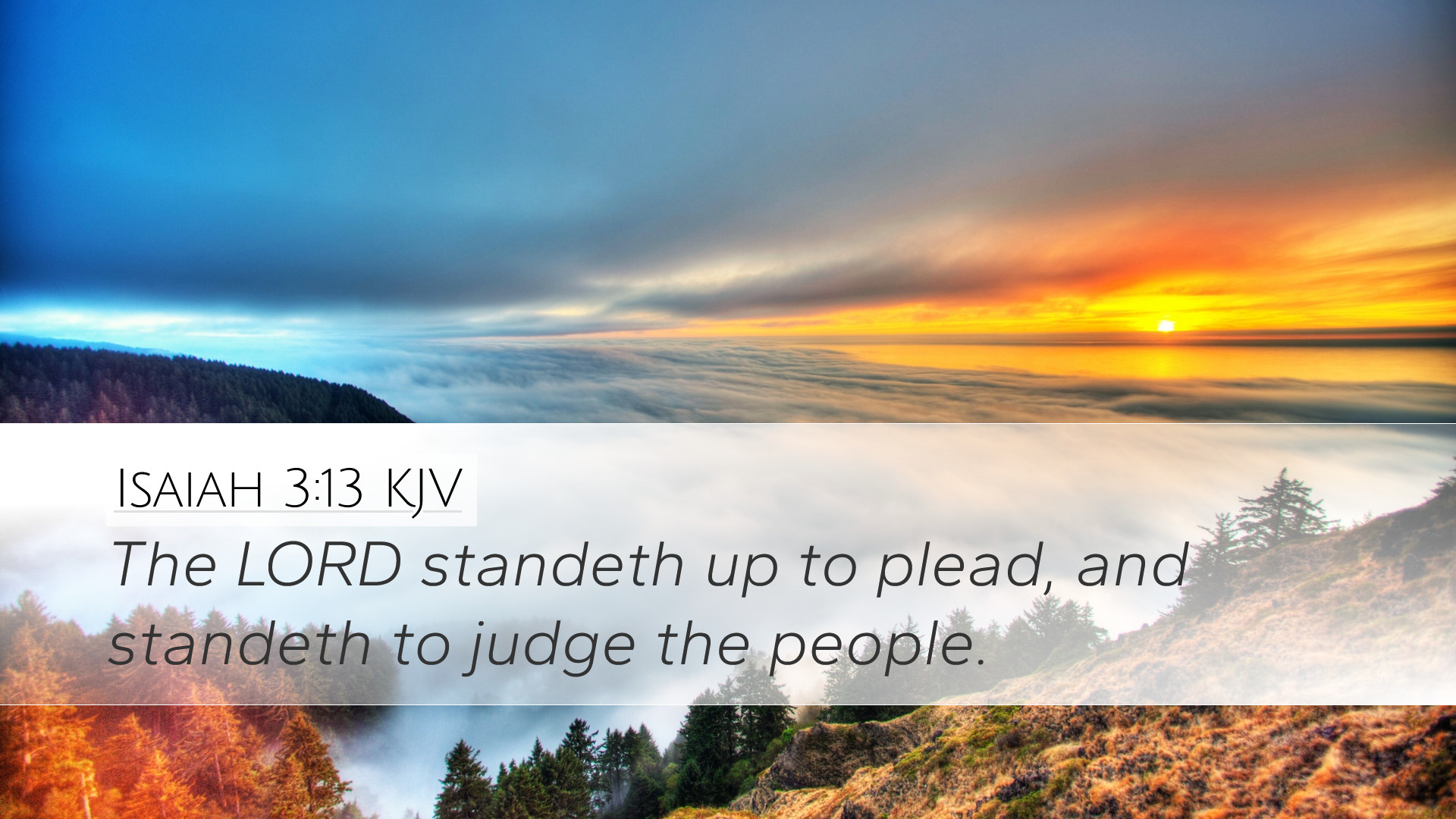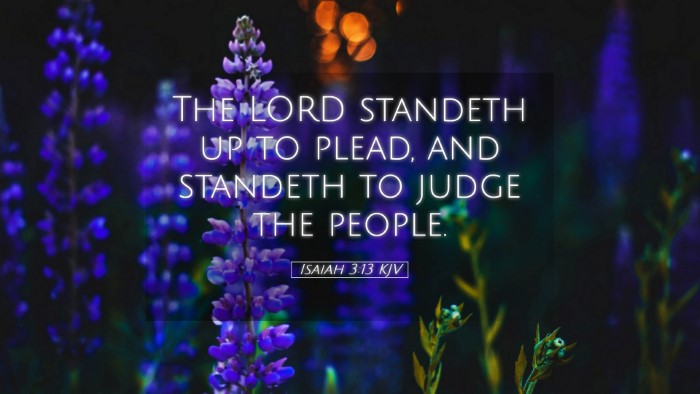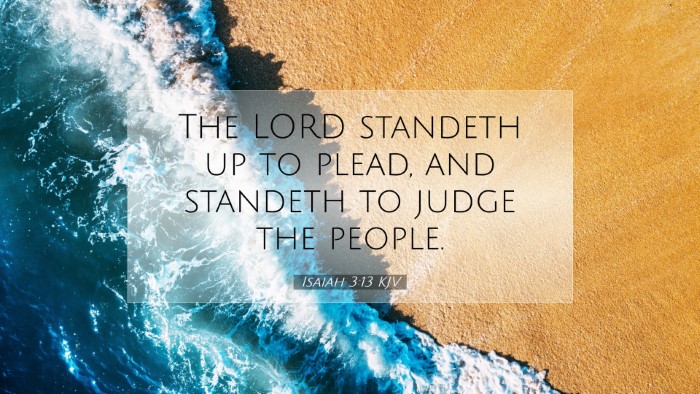Commentary on Isaiah 3:13
Isaiah 3:13 states: "The Lord standeth up to plead, and standeth to judge the people." This verse captures the profound moment in which the Sovereign Lord rises to engage directly with His people and address their conduct, a pivotal theme in the book of Isaiah.
Contextual Overview
The context of Isaiah provides a backdrop of impending judgment upon Jerusalem and Judah due to their moral decay, social injustice, and turning away from God. This chapter emphasizes the consequences of the nation's rebellion and the inevitability of divine scrutiny.
Exegetical Insights
This verse illustrates two key actions of the Lord: pleading and judging.
-
Pleading:
Matthew Henry emphasizes that God, in His grace, often first attempts to reason and plead with His people before resorting to judgment. This reflects His desire for repentance and restoration. As the Divine Advocate, He seeks to bring His people back to righteousness through conviction and appeal.
-
Judging:
Albert Barnes notes that the Lord's role as a judge signifies that He will not overlook the injustices and sins of His people. Judgment serves both as a reminder of God’s holiness and as a means of purification for His people. God's judgment is not arbitrary; it is rooted in His justice and righteousness.
Theological Reflections
Isaiah 3:13 reflects foundational themes that resonate throughout the entire Scripture:
-
The Lord's Sovereignty:
God's authority to plead and judge exemplifies His supreme control over the nations. Adam Clarke points out that His rising to judge indicates active engagement in human affairs, revealing His desire to intervene and restore order.
-
Call to Repentance:
The Lord's pleading signifies His patience and mercy. The act of standing up implies urgency; it is a call for the people to awaken to their sins and turn back to Him. Theology students should note that God often extends grace before executing judgment, illuminating His character as both just and gracious.
-
Public and Private Accountability:
This verse also raises significant questions about communal and individual responsibility before God. The public sins of the nation warrant divine scrutiny, indicating that leaders and citizens alike must be vigilant in their moral conduct. Pastors and theologians are encouraged to foster discussions about collective repentance and the implications of public sin.
Application for Today
Isaiah 3:13 serves as a powerful reminder for contemporary Christians regarding the nature of God’s judgment and the importance of maintaining righteousness in both personal and communal contexts.
-
Awareness of God’s Presence:
Believers today should remember that the Lord is actively engaged in their lives, not only as a judge but as an advocate. This dual role encourages a life led by awareness of divine presence, fostering growth in holiness.
-
The Importance of Advocacy:
As God pleads for justice and righteousness, Christians are called to uphold these values in their communities. This entails advocating for the marginalized and standing against injustices that mirror the societal failures of ancient Judah.
-
Recognition of Consequences:
Lastly, the inevitability of judgment should serve as a stark reminder of the consequences of sin. Pastors and leaders must communicate that neglecting God’s ways leads to societal decay, just as it did in ancient Judah.
Conclusion
Isaiah 3:13 presents a compelling image of God rising to plead and judge, reminding us of His unwavering justice and mercy. For pastors, students, and theologians, this verse invites deep reflection on the Lord's character and our responsibility to align with His call for justice and righteousness. Let us heed His voice and seek restoration in our lives and communities.


